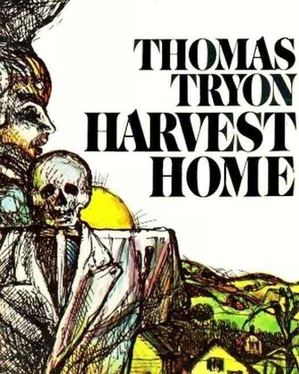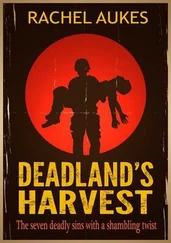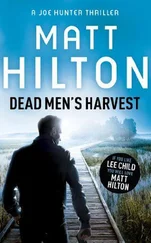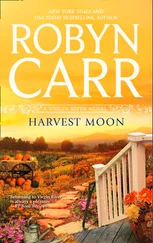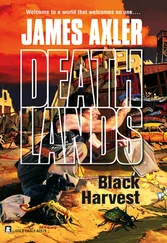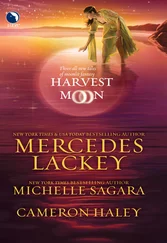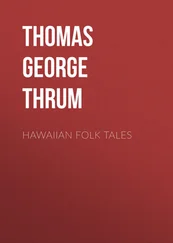Thomas Tryon - Harvest Home
Здесь есть возможность читать онлайн «Thomas Tryon - Harvest Home» весь текст электронной книги совершенно бесплатно (целиком полную версию без сокращений). В некоторых случаях можно слушать аудио, скачать через торрент в формате fb2 и присутствует краткое содержание. Жанр: Ужасы и Мистика, на английском языке. Описание произведения, (предисловие) а так же отзывы посетителей доступны на портале библиотеки ЛибКат.
- Название:Harvest Home
- Автор:
- Жанр:
- Год:неизвестен
- ISBN:нет данных
- Рейтинг книги:5 / 5. Голосов: 1
-
Избранное:Добавить в избранное
- Отзывы:
-
Ваша оценка:
- 100
- 1
- 2
- 3
- 4
- 5
Harvest Home: краткое содержание, описание и аннотация
Предлагаем к чтению аннотацию, описание, краткое содержание или предисловие (зависит от того, что написал сам автор книги «Harvest Home»). Если вы не нашли необходимую информацию о книге — напишите в комментариях, мы постараемся отыскать её.
For Ned and his family, Cornwall Coombe was to be come a place of ultimate horror.
Harvest Home — читать онлайн бесплатно полную книгу (весь текст) целиком
Ниже представлен текст книги, разбитый по страницам. Система сохранения места последней прочитанной страницы, позволяет с удобством читать онлайн бесплатно книгу «Harvest Home», без необходимости каждый раз заново искать на чём Вы остановились. Поставьте закладку, и сможете в любой момент перейти на страницу, на которой закончили чтение.
Интервал:
Закладка:
“I guess I might,” I said, laughing.
“Sure you would. Anybody would. But what sort?” she asked in a dismayed voice, looking at the sky again. The pig, she went on, had been put down for salt pork, and she had made sausage with her own casings. The leavings went for blood puddings, and now all that remained was the head which was boiling in the pot; that would be for scrapple.
She pulled out the paddle, shook it, and laid it aside. Now she took a splint basket from a peg on the wall and marched to a corner of the garden where she began examining her plants.
“Only a minute,” she called, snipping several sprigs with the large silver shears suspended from her waist by a length of black ribbon. Someone was sure to have iced tea at the fair, she said as I came up behind her, and a sprig of mint always went nice. She held it out for me to inhale its cool fragrance, then cut some more and offered me another sniff; “Pennyroyal. Good for colic.” When she had done, she led me to the back door, took off her boots, and coaxed her feet into the worn shoes. Enjoining me to wipe my feet, she showed me into the kitchen. She laid the basket on the table and indicated a chair where I might be seated. While I put aside my sketchbook and drawing case, she tucked the cinnamon buns in the warming oven, put out a second cup and saucer beside the one already in evidence, poured tea, brought butter from the refrigerator, and a pot of honey.
The kitchen was low-ceilinged, small, and comfortable, and furnished with the clutter of a lifetime. One counter, on which sat a score of green bottles, with a scattering of corks and labels, was a small bottling works. Another held several shallow crocks whose contents looked as if they had only recently come from the oven: the blood puddings she had spoken of. A large tin kettle bubbled merrily on the stove. She spooned some of its contents up, blew on it, then tasted. It was not to her apparent liking, for she made a face, then bustled about, adding a little of this, a pinch of that, until the brew was more to her satisfaction.
“How’s your family?” she asked, pursuing these small homely details.
“Fine.” I noticed her hands, large working hands, yet marked by their own simple grace, shapely, tapering fingers and smooth oval nails. “Except for Kate-she’s been having asthma attacks.”
“I know. Asthma.” She spoke the word sharply, marking such a condition with her personal disdain. “That child oughtn’t to have asthma.” She took out the buns and set them on a plate before me. “Help yourself.” Her nimble fingers separated the small harvest of herbs in the basket, tying them in bunches and hanging them from nails set into the edge of a shelf over the sink. Everywhere were jars and other containers, filled with various herbs, stalks, blossoms, seeds-what appeared to be an entire pharmacopoeia of country cures. “What’s that used for?” I inquired, sniffing at the kettle on the stove which gave off an aromatic, almost exotic essence.
“For what ails you.”
I wondered if she was bottling the concoction to sell at the fair, medicine-show style. As though reading my mind, she explained that she did a satisfactory back-door business; hardly a soul in the village didn’t stop by one time or another for one of her herbal infusions.
Her eye fell on my sketchbook. “How’s the paintin’ comin’?” I assured her I was working hard at it, and had a New York gallery swindled into handling my work.
“You any good?”
“Probably not.”
“You’re a liar.” She beamed behind her glasses. “Let me see.” She leafed through the book, murmuring approval; then uttered a little gasp as her hand flew to her breast. I saw she had come upon the page of tombstones I had drawn yesterday. “My, my, ‘course you’re good. Dear me. Clemmon’s stone.” Gazing at the rendering of the grave marker, she seemed a trifle overwrought. “Aye, there’s where dear Clem sleeps.” Closing the sketchbook, she set it aside, and took the chair opposite me, stirring her tea with a small silver spoon. “Clem bought me these cups the year we was married. The whole set, and not a one broken, not even a chip.” She lifted the cup, staring thoughtfully at it for a moment, then sipped. “How long you folks been married?”
“Seventeen years next June.”
“That’s a good time. Must be prett’ near settled in each other’s ways by now. Marryin’s good, keeps a body on his toes. Me, once I lost Clem, I never cared to wed again.”
I watched her peering through the window at the great cookpot in the dooryard, following with her eye the trail of white smoke as it rose in the air. “Straight up,” I heard her mutter, “we’ll have a nice fair.”
She turned back. “Your place seems to be comin’ along, don’t it? You got a good man there in Bill Johnson.”
“Did have.” I explained about Bill’s imminent departure.
“Why, he didn’t say nothin’ to me ‘bout goin’ to Las Vegas.” She sounded surprised and a little miffed that Bill had not taken her into his confidence. “You’ll be needin’ another, won’t you?”
“It’s not easy getting help around here, with everyone thinking about the corn crop.”
“Things’ll slack off a bit now before harvest.” Her heavy tread caused the floorboards to give as she got up and tied one of the puddings in waxed paper and slipped it into the sack I had brought the buns in. “Got to drop this off to Justin Hooke’s. He’s partial to blood puddin’s.”
Justin Hooke, I had learned, was the tall plowman we had seen in the field the day we first arrived in Cornwall Coombe. Owner of the most prosperous farm in the community, he was generally regarded with a mixture of awe, respect, and benevolence. His wife’s name was Sophie, and their union had been one the entire village looked upon fondly. Justin must have been a decided favorite of the Widow’s, for now she placed another pudding in the basket.
“How’d you like that tea?” she demanded, producing a box from the shelf. “Weber’s English. It’s a One-B Weber, not a Two-B. I mail to London after it. Ever hear of Fortnum & Mason?” I said I had. “That’s where. Fancy store. They don’t seem t’carry One-B Weber’s tea in America.”
I carried my cup to the sink, washed and rinsed it, and started for the door.
“Off so soon?” She laid a large quilt beside the basket.
I thanked her, and said I planned on hiking out to the Lost Whistle Bridge to make some drawings. Remembering what I had come for, I gave her the five dollars for eggs and honey. She pocketed it and said she was going out Lost Whistle way herself, if I cared to ride along. “Worthy ought to be here any moment to hitch up the buggy. Unless you prefer shanks’ mare.”
Again I had the feeling of command, rather than suggestion. But, yes, I replied, I’d be happy for the ride. She excused herself, saying she must ready herself for the fair, then left me, and I heard her going up the stairs and passing overhead.
I wandered back out into the dooryard. Chickens and geese pecked at random among the rows of pole beans. In the distance the church bell sounded eight sonorous peals. Hearing a noise behind me, I looked to see someone pedaling a bicycle down the drive. I recognized Worthy Pettinger, who delivered the morning paper.
“Morning,” he called.
I returned the greeting and walked to meet him. “Morning, Worthy.”
“Sorry I’m late this morning, Mr. Constantine. Ma’s frazzled today over the fair.” He gave an energetic nod and his smile was bright as he took a paper from the handlebar basket and folded it. He was of high-school age, thin and lanky, with handsome, well-boned features, and a bright, eager smile; a thoroughly ingratiating young man. An industrious one as well; one could always see Worthy mowing someone’s lawn or chopping in a woodpile or planting a garden.
Читать дальшеИнтервал:
Закладка:
Похожие книги на «Harvest Home»
Представляем Вашему вниманию похожие книги на «Harvest Home» списком для выбора. Мы отобрали схожую по названию и смыслу литературу в надежде предоставить читателям больше вариантов отыскать новые, интересные, ещё непрочитанные произведения.
Обсуждение, отзывы о книге «Harvest Home» и просто собственные мнения читателей. Оставьте ваши комментарии, напишите, что Вы думаете о произведении, его смысле или главных героях. Укажите что конкретно понравилось, а что нет, и почему Вы так считаете.
